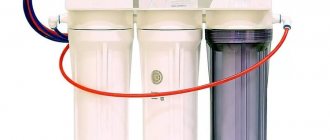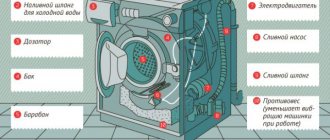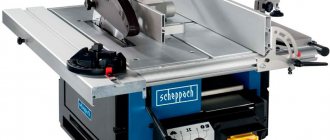Most simple electrical panels have a resistance inside the housing in the form of a spiral heating element, halogen or tape laid out in a circle.
When current passes through them, the spiral heats up, transferring heat to the outer surface of the plate.
Only after this does the cookware placed on it begin to heat up.
The operating principle of an induction cooker is often called cold. This hob has a built-in induction coil, which, when current passes through it, does not release thermal energy, but creates an electric magnetic field.
From it, Foucault eddy currents begin to flow in the bottom of a special dish made of ferromagnetic material. They heat the dishes themselves.
This way, the surface of the stove does not become hot, and food is cooked by directly heating the pots and pans.
This is the most important feature of induction panels - direct heating of the container (not food, as in microwaves) in which food is cooked, without any intermediaries.
However, in addition to this, there are a number of other indicators, which we will consider in more detail, so that you can make an informed choice and buy the most suitable hob for your kitchen.
Energy Saving
A sore point for a thrifty housewife: which stove consumes more and which consumes less?
With the constant increase in prices for electric energy, one of them will help you save several tens or even hundreds of kilowatts per month.
The power of one burner in both models depends on its size and ranges from 1 to 2.5 kW.
There is, of course, a so-called booster - a quick warm-up button on induction panels.
On it, the power of individual circles can simultaneously increase up to 3.5 kW. A liter of water boils in just one or two minutes.
But we will not take it into account, because the point here is not in the power of the burner, but in the principle of heat transfer discussed above.
An induction panel does not need to waste time heating its surface and then transferring the heat to the cookware. She immediately heats the dishes.
By eliminating this intermediate process when cooking, you will save energy (due to less time).
How much can you really save on this per month? It all depends on the size of your family and the time you spend in the kitchen.
On average, it is estimated that an induction cooker saves up to 20-30% kilowatts compared to a conventional electric Hi-Light. Not to mention the old ones, with cast iron pancakes.
Roughly speaking, if your cooking used to take 100 kW, then with induction, the meter will turn up 70-80 kW. All energy will be spent only on heating the dishes, and not the air around. Judging by the reviews, some are able to save significantly more.
In a conventional one, a lot of excess heat is spent on useless heating of the environment. Especially if the size of the circle exceeds the diameter of the vessel.
Big savings are noticeable when preparing some quick dishes. For the same heating of a kettle or scrambled eggs on an induction stove, you will spend almost half as much time and kilowatts.
Such savings are also ensured by the start-stop operating mode. Cheap stoves cannot constantly maintain high power in frying mode. They go to maximum and turn off so that the food does not burn.
Then they start again and so on. The cycle will repeat until you remove the plug from the socket.
The same applies to working at low power. In fact, when you change the power, the frequency at which the stove turns on changes. This is typical for models with step adjustment (1-2-3, etc.).
In more premium segments (from $500 and above), where the power changes smoothly when you run your finger along the line, housewives complain much less about problems with constant switching on and off.
User voting
Which induction/glass ceramic hob would you choose or recommend?
Gorenje IT640BCSC
25.00 % ( 1 )
Samsung NZ64R9777GK
50.00 % ( 2 )
AEG HK 634200 XB
0.00 % ( 0 )
Korting HI 64021 BW
0.00 % ( 0 )
Hotpoint-Ariston KIS 640 C
0.00 % ( 0 )
Indesit IVIA 640 C
0.00 % ( 0 )
DARINA P EI305 B
0.00 % ( 0 )
Gorenje ECT 680 ORA W
0.00 % ( 0 )
AEG 66301KMN
0.00 % ( 0 )
Hansa BHCI 65123030
0.00 % ( 0 )
Fornelli PVA 60 CREAZIONE
0.00 % ( 0 )
Heating rate
Meticulous users, to find out which stove heats faster, carried out real measurements. To do this, we took two pans of the same type with the same temperature of water and body walls.
Next, we needed to find out which stove would boil water faster? Induction has always coped with this task several times faster than simple electric.
This is again explained by the exclusion of an extra intermediary from the process. Everything is elementary.
Fewer elements to transfer heat, faster heating. Is this always convenient? It turns out not.
For example, when heating something liquid with solid pieces, the liquid will boil quickly, but these same pieces will not warm up immediately. With such food, it is better to initially set the power a little lower.
By the way, manufacturers of cheap induction cookers often deceive their customers. A circle of a burner of the same size is drawn on the surface, but in fact, inside there is an inductor coil of a much smaller diameter.
Hence the lower heating rate and greater overheating of the central zone. As a result, all the food that gets into the center of the frying pan will burn, and vice versa at the edges.
How can you find out at home without disassembling the panel? Elementary. Place a frying pan much larger than the circle drawn on the stove, pour water into it and turn it on to maximum.
After a minute, you will see the actual diameter of the heating zone from the bubbles formed.
Every housewife can find out in this simple way how good and high-quality the induction hob was sold to her. Remember that a small inductor on a large pan gradually leads to uneven heating and deformation of the bottom.
Practical difference
If we compare these two very progressive slabs, we get the following register:
- The induction version will boil water in 2-3 minutes, while glass ceramics will bring the same volume to a similar state in only 5-7 minutes.
- The electromagnetic model heats up the bottom of the cookware, but the work surface itself does not heat up, only in the area where the cookware is installed, heat is partially transferred, but not above 50 degrees. Glass ceramics transmit heat from the heated burner to the cookware and heat it up, so the induction option is considered safer in all respects.
- Users must constantly visually monitor the process while cooking on glass ceramics. All you need to do with an electromagnetic cooker is set the cooking time for the product and calmly go about your business: the automation will turn off the current, and your soup will never run away, and your roast will never burn.
- An induction panel helps save energy because it instantly de-energizes the coils, it does not have a cooling process, and glass ceramics still cool down for a long time, although much faster than an ordinary electric stove.
As we see, there are significant differences here too, but the advantages and individual disadvantages of both options are relative and require special consideration.
Inertia
What is this indicator and what does it mean? Inertia is the time of heat retention after a power outage. Roughly speaking, how long does it take for the panel to cool down?
In some cases, food requires a certain time during the cooking process to “reach” the desired consistency - the simmering effect.
And here this same inertia will come in handy. If you reduce the temperature on an electric stove or turn it off completely, it will not cool down immediately.
In this regard, induction is closer to gas. I turned it off and the temperature immediately dropped. This is especially useful when something boils or “runs away” from the pan, and you need to instantly reduce the temperature. Here, excessive inertia seems to be a problem.
To create the effect of inertia, the induction cooker has a pulsed simmer mode. That is, on “low heat” the low boiling power is regulated something like this: it heats for 3 seconds, not for 3 seconds.
At this time, the water will either boil or cool, which is not very convenient and will give an unpredictable cooking result. The problem is partly solved by using dishes with a thick multi-layer bottom.
Based on the above, it is impossible to give an unambiguous answer to the question of which type of slab is better and which is worse in terms of inertia. Each housewife decides for herself.
Which is better, induction or electric hob: complete analysis
Many new residents choose modern models of induction or electric stoves instead of the old gas stove. This type of hob is often installed after a major overhaul or failure of an old kitchen stove. They are more than superior to conventional gas stove models, as they are much more efficient and easier to use. Also, new buildings do not always have a central gas supply, so people decide to acquire an autonomously operating stove.
At the time of purchase, a logical question arises: what is better to choose? To dot all the i's, you need to thoroughly understand the operating principle of an induction and electric panel and the difference between them.
Safety
The electric hob heats up to 500 degrees during operation!
Of course, no one would even think of touching the red circle with their hands. However, after turning off, when the circle goes out, do not forget about the above-mentioned inertia.
This is where you can get a painful burn. There's no mention of children. These curious creatures are simply attracted to the “bright red sun” on a black surface.
And pets, walking on the stove with their paws, can easily turn it on in your absence (if you forgot to turn on the lock when leaving).
Therefore, the safety of electrical panels, despite the absence of open flames, is at a very low level.
In induction cookers, even when the power is turned on and the pan is removed from the surface, the automation immediately generates an error and turns off the stove after a while without your participation.
The surface remains cold even during cooking.
The only thing you can get burned on here is the dishes.
Conclusion
The Siemens induction hob seemed like a good solution to us. During the entire period of use there were no complaints about it. Even my wife, who is a skeptic regarding any technical innovations, appreciated the ease of operation and, most importantly, maintenance of the device. Remember, I wrote that “escaped” food does not burn. Then it can be easily wiped off the surface with a regular cloth.
Despite the seemingly high cost, the induction hob is an excellent choice. We recommend!
- Back
- Forward
Cookware for induction cooker
On an electric hob you can cook food in any container. Place whatever you want and heat it up.
But with an induction cooker you will have to part with most pans with a thin coating. In frying pans and pots with little metal, induction does not work very well.
The wall thickness should be at least 2mm, and the minimum bottom diameter should be 8-12cm. You can’t make delicious coffee in a small Turkish coffee pot.
Therefore, special utensils made of a ferromagnetic alloy are usually used for such stoves. When buying it, pay attention to the icon.
If you don't have such utensils, adapters are available. Place this adapter on an induction hob, and place your favorite frying pan on it.
Is it convenient or not? Not really. It turns out that you return to that same extra intermediary, which means you lose most of the advantages discussed earlier.
At the same time, surprisingly, in old enamel saucepans and ladles, and even in grandma’s cast-iron frying pan, it is quite possible to cook food.
In general, cookware that is highly magnetic is suitable for induction cooking. First of all, this concerns the bottom. It is old cookware with a massive bottom that works most effectively with induction cookers.
If you want to make delicious pancakes, take a cast iron pan with a thick bottom. A thin one, even with a special induction symbol, will not work. The pancakes will either burn or not cook through.
Quality cast iron cookware can be found at Staub and Le Creuset.
You may have a kettle with non-magnetic stainless steel walls, but with a steel bottom. So, it will also heat up perfectly on such a stove.
The induction panel simply “will not see” all other non-magnetic cookware, including aluminum cookware.
By the way, cheap stoves can “lose” seemingly correct pans over time. At first they work normally for several months, and then bam, and they stop seeing and reacting to it.
Dishes with a crooked bottom are also difficult to recognize by the panel.
If you had said to your friends a couple of decades ago that I couldn’t cook dinner because my stove “doesn’t see” the pan, you would have been laughed at. And now this expression has become firmly established in the everyday life of advanced housewives.
Therefore, after purchasing an induction cooker, no matter how large and varied your set of cookware is, sooner or later you will have to go to the store and buy a lot of new things. And these are extra expenses and quite considerable ones.
But even with special dishes, not everything is so rosy. People who cook professionally and a lot clearly say that with induction all cookware spoils and becomes unusable faster.
First of all, this applies to cheap copies, when you leave them empty for a long time on the stove. The red circle is not visible. After several such overheats, low-quality Teflon begins to swell with bubbles and peel off.
Therefore, buy pots and pans with thick walls and bottoms.
There are many myths about the different taste of products cooked on induction and electric stoves. Think about how the heat source can affect the taste?
When cooking food on gas, heating element or induction, in all cases heat will be transferred through the cookware. A difference in taste sensations is only possible if a different container is used in all cases.
Using the same cast iron frying pan, you will not notice any change in the taste of the scrambled eggs. But with microwaves it’s a completely different story.
The only correct note from housewives is that you need to get used to the induction cooker. The cooking process here is slightly different.
Not everyone likes it. This primarily applies to inexpensive models with stepwise power control.
You can’t put out pilaf and other dishes properly, because it burns on the bottom. I put on the water, just started cutting potatoes and carrots, and the water was already boiling. That is, for soups you need to prepare everything in advance. Pies sometimes turn out ready on the outside, but raw on the inside. Since there is no normal “slow” fire.
And some manufacturers implement a safe shutdown function at the software level. This is when the stove itself can turn off after 3-4 hours. She doesn’t care at all that your dish has not yet reached its standard.
And so in many other things. Those who don’t want to retrain, return to the good old electric stoves, or buy combined options - two induction burners, two HiLight.
Or they use the so-called “Domino” models.
From them you can generally assemble a multifunctional work area for all occasions.
Lists of the best!
Having studied the ratings, pros and cons of induction cookers, we present to your attention a list of the best in each category:
- The best budget stove.
- The best tiles with touch controls.
- The best single burner.
- The best two-burner tabletop.
- The best stove with smooth power adjustment.
Let's move on to a description of each model in the presented categories.
Best Budget Stove
Galaxy GL3053 is perfect for beginners or as an addition to the main stove. This is an electric hob with a glass-ceramic work surface.
| + | – |
| Compact (30x36.4x6.5 cm) | No indicators |
| Attractive design | |
| 7 cooking programs |
The average price is 1,500 rubles.
I’m glad because I finally decided to buy such a lovely thing! It is very small and takes up minimal space in the kitchen.
Galaxy GL3053
Best Touch Control Tiles
The use of touch controls in various products has recently become more popular.
Convito HS-III-B26 is perfect for work in public institutions. You cannot place regular dishes on it; cast iron or steel are best. The model attracts users with simple controls and a high level of security.
| + | – |
| Allows you to save on energy | Low power (1800 W) |
| Lightweight (up to 5 kg) | Not all utensils can be used |
| Compact (30 by 6.5 cm) |
Cost: 4,500 rubles
I was very pleased with my productivity. So small, but she can do so many things.
induction cooker
The best single burner
The Philips HD4959/40 induction cooker is compact and portable. It saves cooking time perfectly, which is why all housewives highly recommend it for purchase.
| + | – |
| Stylish design | Sometimes it can switch power itself |
| Convenient | Can't turn off the sound |
| Simple controls |
Price: from 3,000 rubles.
single burner stove
I am attracted by the compactness of this model. It complements my kitchen well.
Best Two Burner Tabletop Stove
Kitfort KT-109 is distinguished by its power, thanks to which cooking time is reduced significantly.
| + | – |
| Easy controls | Noise |
| Small sizes (58.8 by 34.8 cm) | |
| Powerful (4000 W) |
Price – about 7,000 rubles.
Kitfort KT-109
This is an excellent solution for replacing a huge stove. I'm not at home much, so this stove completely satisfies me.
The best stove with continuously adjustable power
Caso S-Line 3500 is a representative of a popular company, available in black with cross-mounted burners. The power is set thanks to the modes, there are 17 in total.
| + | – |
| Made from durable material | Small var. surface |
| Convenient control | |
| Meets ergonomic requirements |
Average price: about 5,500 rubles.
I'm pleasantly surprised by this model. Despite its small size, it works like a huge kitchen oven!
Multifunctionality
Expensive induction models, in addition to the standard functions of heating dishes, have a number of unique features that you will not find in electric stoves:
- information display
A monitor can be built right into the surface of the stove, through which useful and useless information will be displayed regarding cooking and more.
- connection to the smart home system
And this is the ability to independently turn on the hood at the right time, remote control and monitoring via a smartphone and communication with other smart gadgets.
- food recognition
If you accidentally left a wooden cutting board, telephone or other item on the panel other than a ferromagnetic alloy cookware, the stove will understand this and simply will not turn on.
- ultra-fast heating – booster
You press a special button, the power of the mug immediately increases significantly, and the water boils much faster than under normal cooking conditions.
Care and maintenance
When milk and other liquids escape, it ends up with burnt spots and other unfortunate consequences on your electric cooking surface.
When you try to clean it all perfectly, scratches appear. Or whatever you are trying to wipe it off with starts to stick.
For old stubborn stains you will have to buy special scrapers.
As a result, the former beauty disappears, and the surface itself gradually becomes unusable. Nothing burns or sticks on an induction hob.
This is equivalent to spilling milk on the table. Take a cloth, wipe it and continue using it.
Cleaning the induction cooker takes just seconds. Such a surface is almost never dirty. You will also forget what the black, burnt bottom of the dishes is.
All this saves effort, time and money on detergents.
Separately, it is worth mentioning the color. For some reason, most people prefer black slabs. They seem to look nicer and fit better into the kitchen design.
However, with this color, fingerprints, grease stains and abrasions will be visible from any corner of the room.
But practically nothing is visible on the white panels.
Yes, some brands may turn yellow over time and spoil their appearance, but this applies to cheap models. Therefore, initially choose high-quality stoves from reputable manufacturers (Gorenje, Bosch, Zanussi, Electrolux).
Comparison of the presented models
Based on the rating presented above, we have compiled a comparative table of all models.
| Model | Dimensions (cm) | Power, kWt) | Number of burners | Price, rub) |
| Siemens EX375FXB1E | 30.2 x 52 | 3.7 | 2 | 30 000 |
| Gorenje IT 332 CSC | 7.2 x 51 x 30 | 3.65 | 2 | 23 500 |
| Gorenje IS 677 USC | 60 x 51 | 7.4 | 4 | 24 000 |
| LEX EVI 320 BL | 28.8 x 52 | 3.5 | 2 | 9 000 |
| Bosch PIF 645FB1E | 58.3 x 51.3 | 7.4 | 4 | 40 000 |
| Zanussi ZEI 5680 FB | 59 x 52 | 6.6 | 4 | 21 500 |
| Electrolux EHG 96341FK | 59 x 52 | 6.6 | 4 | 32 000 |
| Zanussi ZEN 6641 XBA | 57.6 x 50.6 | 6.6 | 4 | 28 000 |
| Electrolux EGD 6576 NOK | 59 x 52 | 3.7 | 4 | 27 500 |
| Asko HI1995G | 4.3 x 90.4 x 52.2 | 11.1 | 6 | 130 000 |
| Bosch PXX975DC1E | 91.6 x 52.7 | 11.1 | 5 | 87 500 |
| Gorenje EIT 5351 WD | 50 x 60 x 85 | 10.4 | 4 | 40 000 |
| GEFEST PE 6570-04 | 60 x 60 x 85 | 10.1 | 4 | 41 500 |
| Kitfort KT-104 | 60 x 35.5 x 5.5 | 4 | 2 | 6 500 |
| Kitfort KT-101 | 28 x 36.5 x 6.3 | 2 | 1 | 3 000 |
Ergonomics
Most housewives dream of a stylish kitchen with one line so that all the cabinets hang evenly.
The induction hob is perfect for this. An electric stove has strict limitations in this regard.
The minimum height for installing cabinets or hoods above it is 550mm and above (for gas - 650mm).
Restrictions are related to fire safety.
Theoretically, the façade could char or even catch fire. Induction doesn't have this problem.
And it also saves space. If you have a small kitchen and lack of work area, you can remove the pan from the stove and immediately put a cutting board in its place without interrupting cooking.
It turns out that the surface of your stove can perform double duty. There is no need to allocate extra meters for this and go around the “fireball” when cooking.
Extraneous sounds and noise
A conventional electrical panel is absolutely silent in operation. But with induction there are often problems.
For example, crackling or humming when using low-quality cookware. This is caused by the difference in expansion temperature of dissimilar materials. Cookware with a ferromagnetic bottom cracks because the density of the steel body and the bottom are different.
Place a homogeneous enamel saucepan on the surface and you will not hear anything.
So don't listen to experts who say that induction makes a rattling noise. It comes not from the stove, but from the dishes!
In addition to noise, such dishes create vibration. Just put your hand on the tabletop next to the panel and you will clearly feel it.
If the panel is initially installed clumsily, such vibration may even cause empty pans to run away from the stove.
However, even if your cookware is of high quality and there is no cracking noise observed during heating, there is no escape from the noise of the coolers cooling the electromagnetic coils in booster mode. The sound from them is like a fan on a computer system unit.
But if the hood is running while cooking, you don’t really notice it.
General characteristics
The design of modern household appliances meets all requirements and fashion trends: they are free of non-functional parts and are suitable for any kitchen. Smooth surfaces can be in several basic colors: black, white, gray and even gold. Therefore, this criterion for comparison can be omitted.
Much more important are factors such as:
- type of device: portable, built-in or free-standing stove;
- panel dimensions;
- types of heating elements: induction (magnetic coils) or glass ceramics (built-in electric heaters);
- number of heating zones;
- Energy consumption;
- protective functions;
- additional options for convenient use.
Both the first and second types of hobs operate from the mains; the hobs can be built-in or separate.
Harmful radiation
Many housewives are afraid of the harmful electromagnetic radiation that all induction cookers have.
There is definitely radiation. However, it does not have a harmful effect on you, even if you put your head to the stove itself. You are not a cyborg with an iron brain to create eddy currents.
With normal use of the panel, when you cook food at a distance of 20-30cm from its surface, no negative effects occur either.
At a distance of up to 10 cm from the stove, the intensity of the electromagnetic field is about 140 Volts/meter. At a distance of up to 0.5 m it drops to 15 V/m. Here are the acceptable values for this indicator:
Some people mistakenly compare induction cookers to a microwave. But there are completely different frequencies. The microwave contains microwaves (ultra high frequencies), which cause resonance of water molecules. Their friction causes the water to boil. And our body, including the brain, consists of water.
However, we still use microwave ovens. Induction cookers are much safer in this regard.
Measurements were even taken and it turned out that the electric magnetic field near the stove is tens of times less than near an electric hair dryer, which you regularly dry your hair with and bring directly to your head.
However, sick people who wear special pacemakers need to be very careful.
The electromagnetic field of the stove, under certain conditions, is quite capable of damaging such a device. Therefore, in order not to take risks, the instructions usually state that people with similar diseases should be at least 30 cm away from the surface of the panel.
But this is standard reinsurance for manufacturers of such equipment. Some instructions for microwave ovens in the USA even indicate that wet cats should not be dried in them.
Also, do not forget about bank cards and magnetic passes. They should not be brought too close to the stove during cooking, as they may become demagnetized.
Ease of use
When using an electric hob, you will need a huge amount of patience. This is exactly what will help you prepare food without nerves and come to terms with slow heating or cooling of dishes . If the electric stove burner heats up instantly, the cookware gradually increases and decreases temperature. To reduce the “fire”, you will need to go through the stages of a gradual decrease in temperature.
The induction surface is much more convenient in this regard. It instantly heats the dishes and quickly resets the temperature .
For maintenance, both models require the use of a separate sponge and detergents designed for cleaning glass-ceramic surfaces.










